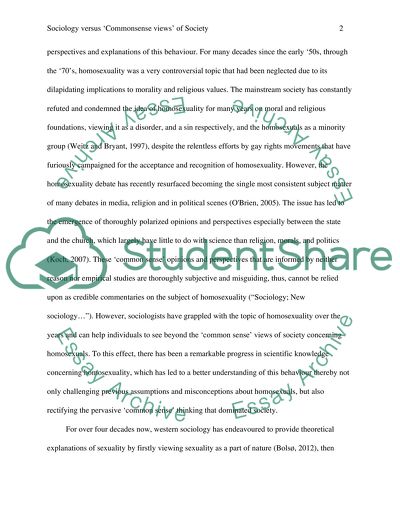Cite this document
(“Sociology versus Common-sense views of Society Essay”, n.d.)
Retrieved from https://studentshare.org/sociology/1492034-sociology-versus-common-sense-views-of-society
Retrieved from https://studentshare.org/sociology/1492034-sociology-versus-common-sense-views-of-society
(Sociology Versus Common-Sense Views of Society Essay)
https://studentshare.org/sociology/1492034-sociology-versus-common-sense-views-of-society.
https://studentshare.org/sociology/1492034-sociology-versus-common-sense-views-of-society.
“Sociology Versus Common-Sense Views of Society Essay”, n.d. https://studentshare.org/sociology/1492034-sociology-versus-common-sense-views-of-society.


